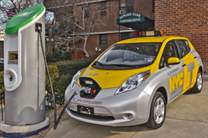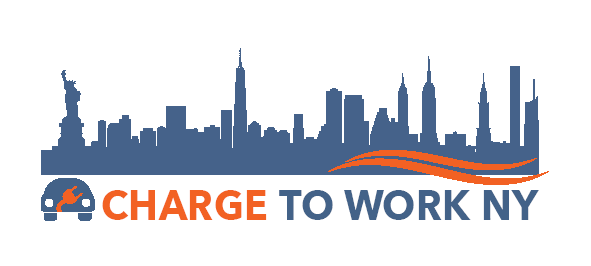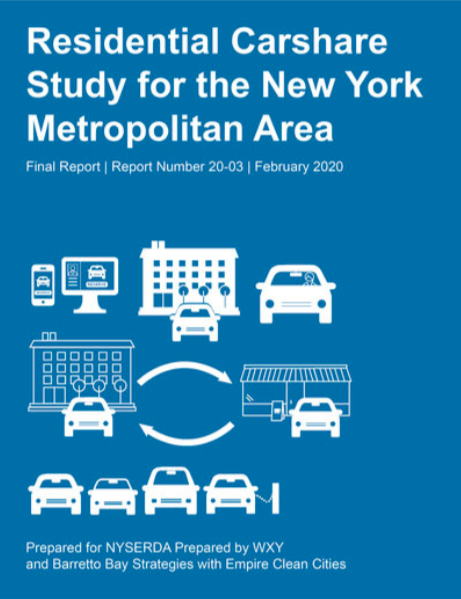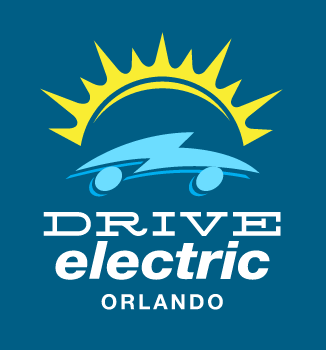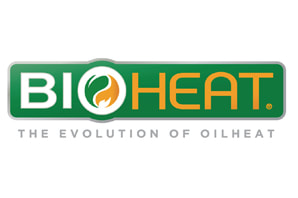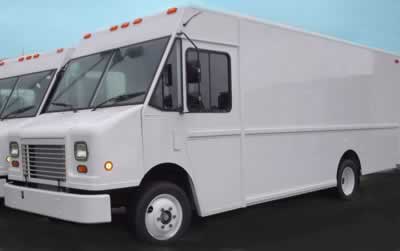EV WATTSEmpire Clean Cities is a project partner for EV WATTS (Electric Vehicle Widescale Analysis for Tomorrow's Transportation Solutions), a program addressing a growing need for practical information about vehicle electrification. The EV WATTS project team is collecting real-world use data from plug-in electric vehicles and charging stations. Researchers then validate, analyze, and summarize the data, which can be used to inform future research, development, and deployment.
|
|
|
Empire Clean Cities worked with CALSTART to engage businesses and employees interested in electric vehicles (EVs) and EV charging infrastructure (EVSE) in the workplace to take advantage of current state, federal, and local incentives to install charging stations and purchase electric vehicles. The program reduced the cost for employers to purchase EVSE ($8,000 per port), and also enabled employees to gain valuable EV workplace charging access and to earn $500 for a new EV lease or purchase in addition to federal and state incentives. Over the course of the program, 66 new charging stations were installed at workplaces in New York State. That's more than 120 ports! |
Empire Clean Cities and the New York Corn and Soybean Growers Associations (NYCSGA) partnered to promote and support the growing soybean farming community in New York State. Locally grown soybean crops can be used in a variety of different products, serving as a feed stock to several industries in New York City and the Lower Hudson Valley. Empire Clean Cities conducted outreach and organized educational events and materials about the benefits of using biodiesel and soy-based products. We believe biodiesel is an important fuel when reducing petroleum consumption, reducing harmful emissions, and improving local air quality. |
|
Empire Clean Cities and Drive Electric Orlando partnered to offer the ultimate electric vehicle rental adventure in Orlando, Florida. Drive Electric Orlando has brought together more than 40 of the biggest corporate names in the Orlando travel and tourism industry to create a seamless driving and charging experience between all major Orlando destinations. The program also provides a variety of additional perks at hotels, theme parks, and convention centers. |
|
Biodiesel is a domestic, renewable fuel for diesel engines derived from natural oils like soybean oil. Biodiesel can be used in any concentration with petroleum based diesel fuel in existing diesel engines with little or no modification. Biodiesel is not the same thing as raw vegetable oil. It is produced by a chemical process that removes the glycerin from the oil. In August 2011, Mayor Bloomberg and City Council Speaker Christine Quinn announced an agreement on Intro 194-A which will work to improve air quality in New York City. This mandate requires heating oil to contain less pollutants, thus making the air more clean for residents to breathe. Under Intro 194-A, New York City requires the amount of sulfur in Number 4 heating oil to be capped at 1,500 parts per million, reducing the current cap by half. By October 2012, Intro 194-A required all heating oil to contain at least 2 percent biodiesel fuel. |
Empire Clean Cities surveyed dozens of food truck owners about their current fuel use and interest in reducing emissions and increasing savings. In New York City, there are 5,100 mobile-food-vending permits issued by the NYC Department of Health, which include trucks and food carts. Just 500 of those belong to food-truck operators. According to a study by the Hunter College Food Policy Center, the estimated revenues from food trucks and carts in NYC is approximately $15 million. |


